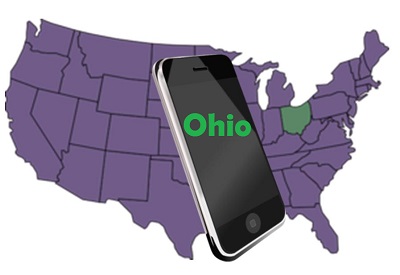MCX will be testing CurrentC among large retail partners in Ohio
The Merchant Consumer Exchange (MCX) is planning to begin testing its new mobile commerce platform, CurrentC, among its large retail partners in Ohio. MCX was established as a partnership among several large retailers, including Target and Walmart. These retailers had taken note of the rise in mobile shopping and have felt the need to engage consumers more effectively. As such, MCX was tasked with developing a mobile commerce platform that would serve this purpose.
Test may determine the launch of the new mobile commerce platform
Ohio will host the first major test of the new mobile commerce platform. The service will allow retailers to support mobile payments being made by customers. Those with smartphones will be able to use the service to make transactions directly from their device. The platform itself has been in development for some time, with the retail partners of MCX showing some impatience when it comes to waiting for a service they can use. Based on the test results in Ohio, CurrentC may see a limited launch next year or within the coming months.
Retailers are beginning to seek out other platforms they can use
 Initially, MCX partners has agreed not to support any other mobile commerce platform while they waiting for CurrentC to be released. This agreement is set to expire within the coming week, however, which will allow retailers to embrace other platforms, such as those coming from Google, Apple, and Samsung. Being able to embrace other platforms will provide retailers with a way to effectively engage mobile consumers, but it may be bad news for CurrentC, which has already struggled to maintain the support of retailers.
Initially, MCX partners has agreed not to support any other mobile commerce platform while they waiting for CurrentC to be released. This agreement is set to expire within the coming week, however, which will allow retailers to embrace other platforms, such as those coming from Google, Apple, and Samsung. Being able to embrace other platforms will provide retailers with a way to effectively engage mobile consumers, but it may be bad news for CurrentC, which has already struggled to maintain the support of retailers.
Security remains a primary concern for those interested in mobile commerce
One of the issues facing mobile commerce as a whole is security. Many retailers have shown concern for the security of consumer financial information when they are participating in mobile commerce. Creating secure platforms has proven somewhat complicated, however, as methods to exploit these platforms have been growing more sophisticated.

 Among those features was whether or not the smartphone had headphones plugged into it, whether the device was charging, and how long ago the phone received an incoming call. With these types of information, the researchers were able to develop an algorithm that their tests have shown can have an accuracy rate of up to 83 percent in terms of determining whether or not the user is bored.
Among those features was whether or not the smartphone had headphones plugged into it, whether the device was charging, and how long ago the phone received an incoming call. With these types of information, the researchers were able to develop an algorithm that their tests have shown can have an accuracy rate of up to 83 percent in terms of determining whether or not the user is bored.